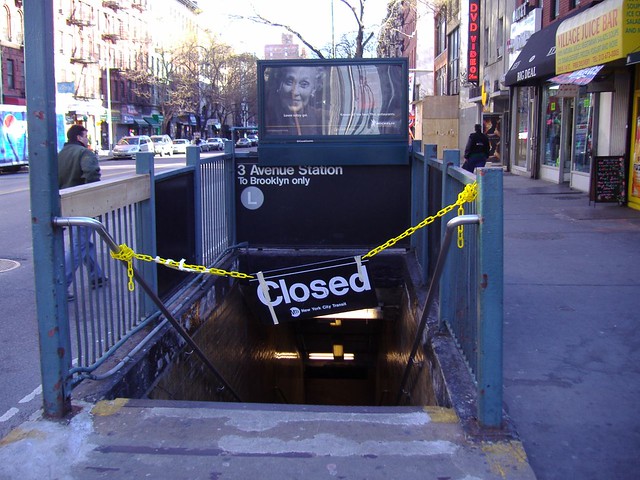As the MTA and TWU enter month six since their previous contract expired, negotiations have been awfully silent for a while. MTA Chairman Joe Lhota brough that out in the open today though with a forcefully worded piece in the pages of The Post today in which he calls upon the TWU to make some sacrifices. After years of streamlining operations, he writes, it’s time for the TWU to give back as well.
Lhota:
It’s not yet common knowledge, but the agency is in an era of cost-containment and -control unlike anything in its history — as even a quick glance at the MTA’s financial statement reveals. Annual expense reductions in the operating budget — that is, savings that recur year after year — totaled about $700 million in 2011 and will grow to $890 million in 2015. That’s 11 percent of our discretionary operating budget.
How did we do it? We eliminated more than 3,500 positions, including 20 percent of our headquarters staff. We renegotiated vendor contracts. We froze wages for all non-union employees. We rebid employee health care. We reduced unnecessary overtime and consolidated redundant functions. The list goes on and on . . . and this work is far from over. In 2012 and beyond, we’ll continue to slash costs while looking for creative ways to bring in revenue…
All the while — during a time of unprecedented cost-cutting at the MTA, and as our nondiscretionary costs spiral out of control — binding arbitration has required that members of our largest labor union get pay hikes of 4 percent in 2009, 4 percent in 2010 and 3 percent in 2011. That’s a whopping 11 percent over the last three years, at a time when New York City’s cost-of-living index rose 4.6 percent.
Managers and non-union workers haven’t been so lucky. They got 0 percent in 2009, 0 percent in 2010 and 0 percent in 2011. Today, these public servants have gone four years without so much as a cost-of-living increase. That’s why the MTA is asking its unionized workforce, during its current contract talks, to forego raises for the next three years.
Labor, writes Lhota, should be “a part of the solution.”
On Twitter, TWU Local 100 called Lhota’s piece “outrageous” but didn’t offer up much more. I’m not surprised they don’t see eye-to-eye with the Chairman, but he makes a very compelling case indeed. At a time when non-unionized workers haven’t seen a raise in nearly half a decade and the MTA is clearly at risk of a brain drain of talented workers, everyone has to pay somehow.

 A net-zero wage increase for TWU workers would be “fair and appropriate” considering the totality of the circumstances, the nonpartisan Citizens Budget Commission said this week. In a report analyzing what could and should happen were the MTA and TWU face arbitration to resolve their ongoing labor dispute, the CBC said a compensation package should not cause fare increases, and the Commission explained in detail how TWU workers have enjoyed prosperity in a poor economic climate and should not expect to earn across-the-board wage increases.
A net-zero wage increase for TWU workers would be “fair and appropriate” considering the totality of the circumstances, the nonpartisan Citizens Budget Commission said this week. In a report analyzing what could and should happen were the MTA and TWU face arbitration to resolve their ongoing labor dispute, the CBC said a compensation package should not cause fare increases, and the Commission explained in detail how TWU workers have enjoyed prosperity in a poor economic climate and should not expect to earn across-the-board wage increases.